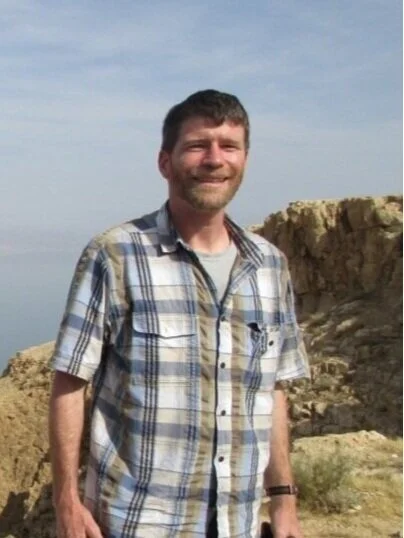Background
Dr. Stephen Gasteyer graduated from Earlham College in 1987 where he obtained a B.A in International Studies. From 1987-1990 he worked the Peace Corps in Mali on a Community Agricultural Extension. After leaving the Peace Corps he attended Iowa State University where he got his MS.c in Rural Sociology in 1991, his Master’s thesis was “Manathar Tabia’i: Differing Perspectives of Landscape Change in Hebron’s Eastern Slopes.” In 1991 he was a Research Consultant for the Refugee Policy Group in Washington, DC. From 1991-1993 he was a Program Associate on the Committee on Agricultural Sustainability for Developing Countries, World Resources Institute. In 1995 he worked for the UNAIS Project Worker/Researcher for the Applied Research Institute in Jerusalem, Bethlehem, and West Bank of Palestine. He also worked for them at the Palestinian Institute for Arid Land Studies, in Hebron and West Bank of Palestine from 1995 to 1996.
Starting in 1996 to 2001 he worked as a research assistant in the North Central Regional Center for Rural Development (NCRCRD) at Iowa State University. In 2001 He graduated from Iowa State University with his Ph.D. in Sociology, his dissertation was on “Emerging Bridges Over Contested Waters: Coalitions, Participatory Process, Social Capital and Community Capacity for Water Quality Protection.” After graduation he worked as a research assistant at Globalization Challenge Initiative/Citizens Network for Essential Services in Takoma Park, Maryland until 2002 and then at the Rural Community Assistance Partnership, Inc. (RCAP), Director, Water and Community Program until 2005. In 2005 he started working as an Assistant Professor at the University of Illinois-Urbana-Champaign in the Department of Human and Community Development, focusing on Human and Community Development and Leadership through 2008.
In 2008 Dr. Gasteyer took a job at Michigan State University as an Assistant professor and later became an Associate Professor in 2014. He researches the political ecology of the landscape change and food access, access to water and sanitation, energy, and public health among other things. More specifically, recently he has studied the impacts of food access on urban greening, environmental equality, water governance, and environmental equity in access to water and sanitation. In the school year 2015-2016, he took a Fulbright to research at Birzeit University in Ramallah, Palestine. He is currently researching challenges of access to potable water and sanitation in the United States, Palestine, and Tanzania, improving access to and distribution of local food, and processes of settler colonialism, resource takings, impacts, and resistance.
